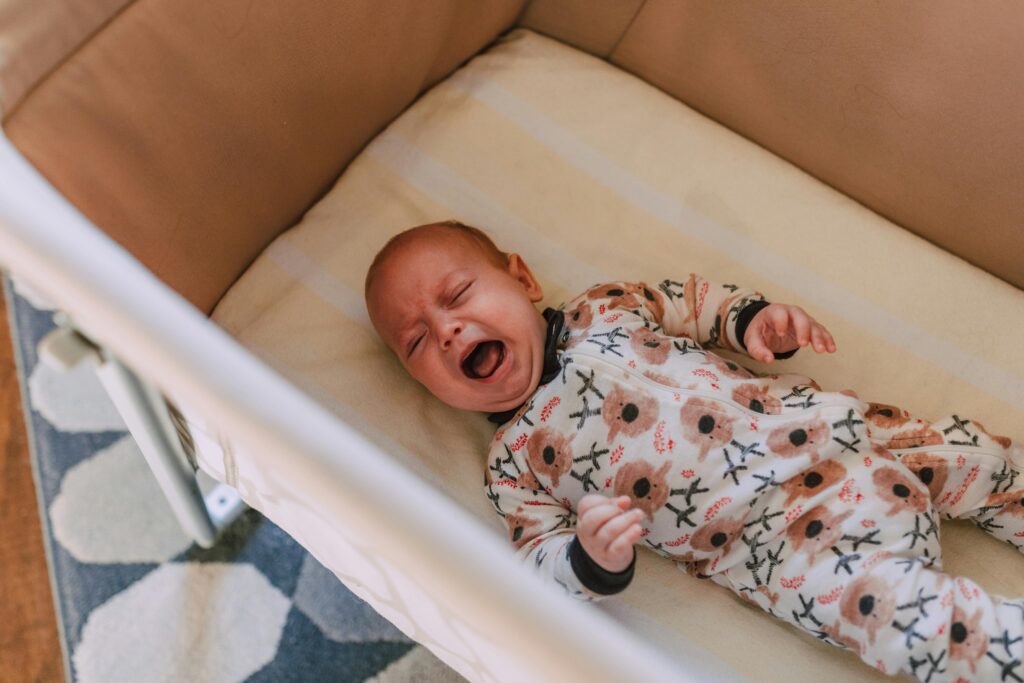Myths #1 and #2 about Sleep Training – Debunked!
June 28, 2024

Today and for the next 3 blog posts we’ll take a look at 8 common myths about sleep training. There’s a lot of misinformation and judgment about sleep training. To me, sleep training means teaching a child independent, age-appropriate sleep habits. My goal and priority is to always support a family in a way that feels right for them. This means without judgment and always with kindness and understanding. I hope we can start to move the conversation about sleep training to be about each family doing what’s right for them even if it’s different than what you would choose through a lens of support.
Sleep training is synonymous with “cry it out.” Once my child is sleep trained, I can expect her to sleep through the night every night. These are two very common misconceptions about sleep training. Let’s take a closer look at these two ideas.
Myth #1: Sleep training is synonymous with “cry it out”
Cry it out, also called extinction, is often the first thing people think of when the topic of sleep training comes up. Cry it out is a sleep training method popularized by Dr. Richard Ferber. Very few parents are interested in putting their infant to bed, shutting the door, leaving, and not returning until the next morning. This method works quickly, but I don’t believe it’s the right sleep training method for the majority of families. Sleep training is an umbrella term that includes numerous approaches to helping babies and toddlers learn to fall asleep on their own. Fortunately, there are several ways other than cry it out to sleep train an infant or toddler. These options vary in the amount of parental involvement and thus the time it takes to see progress towards independent sleep.
Myth #2: Once my child is sleep trained, I can expect her to sleep through the night every night.
The definition of sleep through the night varies based on the age of the child. Sleeping through the night may be one goal of sleep training, but the goal for most parents is to help their little develop independent sleep and healthy sleep habits. By teaching a little one to fall asleep independently, they will often sleep longer stretches at night as they learn to connect sleep cycles. For example, infants are unlikely to sleep “through the night” until 8 months. From birth to 7 months of age, it is common for your little one to wake up to eat at least once.
Even in a child who is fully sleep trained, she may still wake up at night here and there. None of us, adults included, have a perfect night of sleep every night. Little ones can wake up more frequently when sick, with a dirty diaper, or with a nightmare. These are all normal and expected bumps in the road.
Check out this article to learn more about how much sleep your child needs.
Stay tuned in 2 weeks for the next post addressing the next two sleep training myths: myth #3 sleep training could harm my child in the long-term and myth #4 sleep training will hurt the bond with my baby.